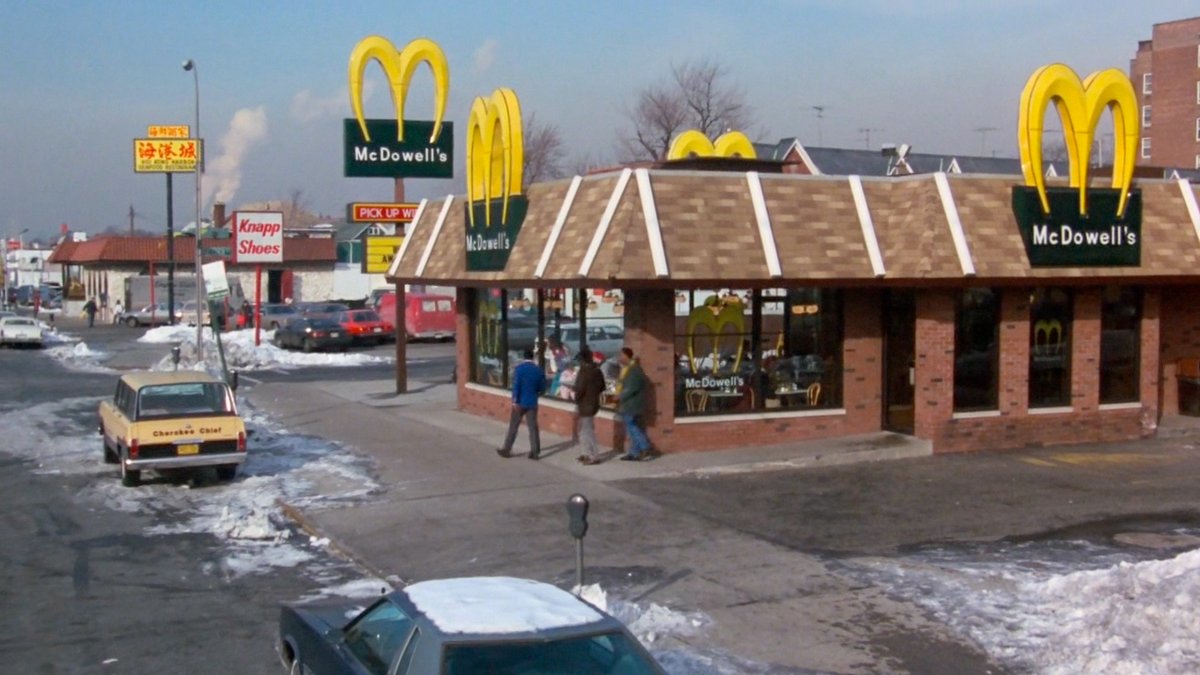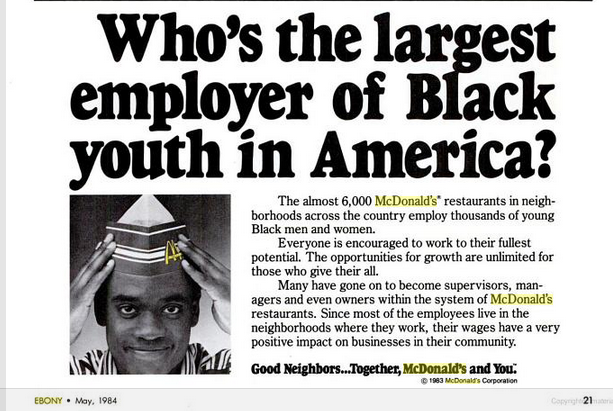since i'm going on a lot about Black people and class, i've been thinking a lot about "Coming To America" thru the lens of @DrMChatelain's book "Franchise," which at this point i will reference for no reason
Doc writes that in the late 1960s/early 1970s, McDonald's corporate, previously focused on suburban expansion, realized how much money it could make putting franchises in Black, inner-city neighborhoods. (read: because of food deserts and the like).
A lot of those first/early Black McDonald's owners became millionaires.
(and millionaires who thought of their wealth as part of the ascendant Black capitalism wave of the post-civil rights era)
(and millionaires who thought of their wealth as part of the ascendant Black capitalism wave of the post-civil rights era)
she said it's not that easy to take the route to Black wealth now: the cost of starting a McDonald's franchise is higher now so you would already need access of capital to do it + inner cities and Black neighborhoods are today saturated with fast food options.
her book is broadly about the complicated roles that McDonald's has played in Black economic and political life — a site of civic protest, a place for voter drives and job fairs, a pillar of Black capitalism, etc —
— but it's that short period where McDonald's/fast food ownership was a route to the Black elite that sticks with me. A lot of those early Black franchisees were not college-educated; their kids, though, grew up straight-up Jack & Jillers.
Essentially, they were the McDowells.
Essentially, they were the McDowells.
i dunno why i never noticed this in the *million* times i've seen Coming To America, but it's such a specific social location that only really existed in a time and space and was probably already coming to an end around the time CTA came out.
Even the paternalism that Cleo McDowell has toward Akeem is so specific — part of the noblesse oblige specific to the Black McDonald's millionaire cohort that Marcia examines in the book.
ANOTHER interesting thing she talks about is that those franchisees face specific challenges passing down their businesses — your Jack & Jill kids (my example, not hers) didn't go to Columbia in order to eventually run *McDonald's franchises.*
anyway, yeah: the idea that Lisa came from new, aspirational Black fast food money and Akeem, masquerading as a janitor, had to level up to gain entry into her bougie social universe was one of those things that went past me as a kid but seems so acutely observed now.
Apologies for typos, incorrect prepositions, etc
Also, also: did a Q+A with Dr. Chatelain about those Calvin ads for McDonald’s, which were very much part of the Black capitalism/uplift DNA of McDonald’s Black focused-advertising
Think about how much those ads were less about fries than *jobs* and *personal responsibility*
Think about how much those ads were less about fries than *jobs* and *personal responsibility*
The framing in these ads was very much coming from Black franchisees and the way they saw themselves: as burger-slingers and benefactors
One last thing since we’re talking about knock-off fast food establishments: The various legal sagas of Kennedy Fried Chicken https://www.nytimes.com/2011/02/14/nyregion/14chicken.html
“...it’s notoriety comes from being a kind of second-rate imitation of the popular Kentucky Fried Chicken chain.
Such similarities could naturally lead Kennedy Fried Chicken to be confused with the other KFC. But not if the original KFC can help it.” https://www.nytimes.com/2004/08/15/nyregion/chicken-little.html
Such similarities could naturally lead Kennedy Fried Chicken to be confused with the other KFC. But not if the original KFC can help it.” https://www.nytimes.com/2004/08/15/nyregion/chicken-little.html

 Read on Twitter
Read on Twitter

